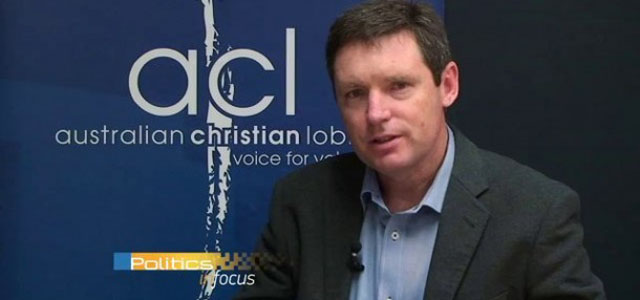The Australian Christian Lobby will exert pressure on Tony Abbott’s new government to use its powers to override the ACT’s proposed marriage equality laws by passing a bill through both houses of federal parliament.
The prime minister-elect faces an immediate test on marriage equality, after the ACT Labor government announced on Thursday that it would introduce legislation to legalise same-sex marriage in the next sitting of parliament.
ACT Chief Minister Katy Gallagher said her government would once again “bring forward legislation that delivers equality for same-sex couples, legislation that promises them the right to marry”.
The Gallagher government’s move comes seven years after the Howard government used commonwealth powers to override ACT legislation to legalise same-sex civil unions.
Australian Christian Lobby managing director Lyle Shelton said Mr Abbott’s government should override the laws.
“Yes, I think the parliament should override this,” Mr Shelton said. “It’s in the parliament’s interest to protect the constitution, the constitutional power for marriage . . . it is a constitutional nonsense for a territory to be seeking to legislate in this area. So I think the parliament would have to take action on this.”
Mr Shelton described the latest gay marriage bill to be put forward as “a bit of a nonsense by the ACT government just joining up with the advocates for the same sex marriage campaign and using the territory government in probably really a mischievous way because it really doesn’t have the power here and it’s not appropriate”.
He conceded the ACT government had won an election promising to deliver this reform.
“Sure that’s very true but that doesn’t change the fact that the territory doesn’t have constitutional jurisdiction over this area,” he said.
University of NSW law professor George Williams said the power of the governor-general to disallow territory laws was removed in the last federal parliament. That means the Abbott government no longer has a veto over such a law.
“It would be possible to override the ACT law, but only by passing a bill through both houses of federal parliament (which is what happened with the overriding of the Northern Territory euthanasia legislation in 1997),” Professor Williams said.
“That of course is a much more difficult course, especially given the current numbers in the Senate. All this means that an ACT same-sex marriage law would be much harder to override than was the case in 2006.
“It does require a bill to get through both houses, but the numbers are not as clear as they seem. The vote on overturning the ACT law might again be seen as a conscience issue by the Labor Party, which could complicate the matter. And, of course, the numbers will change when the new Senate begins on 1 July next year.”
Australian Marriage Equality national director Rodney Croome said he wanted the federal government to respect the spirit of the Constitution and allow any constitutional questions raised by the Territory marriage equality law to be resolved by Australia’s independent umpire, the High Court.
“If Mr Abbott expects people to respect his mandate, he must in turn respect the mandate of the recently elected ACT government to provide full equality and dignity for all their citizens,” Mr Croome said.
“In Australia, the reform of laws governing personal relationships — be they marriages, de facto unions or civil unions — have always occurred first at a state and territory level and only later federally.
“The recognition of same-sex marriages first at a state and territory level follows this long-established logic of federalism.”
Author: Patricia Karvelas
Publication: The Australian
Date: 14 September 2013

